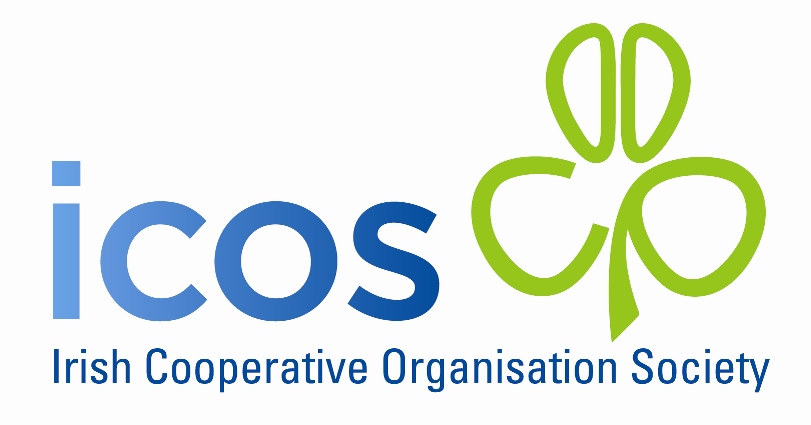Ten years on, the Quality Payment System needs to get real – ICOS

The Quality Payment System is now a Decade old, it’s high time to review it, ICOS has stated.
Now that they have come to the table, and at a time of crisis, the meat industry and farmers need to delete or modify parts of the scheme that are either not working as intended or, that don’t have any basis in terms of real market demand.
The now dysfunctional QPS structure was the result of detailed discussions over many months between the IFA and Meat Industry Ireland. At the time of its then introduction in 2009, it was hailed as a major advance by processors and a positive step forward by producers. The processors said the payment system would stimulate the production of greater numbers of higher quality cattle.
Prior to that, detailed scientific research was carried out by Teagasc Grange, on meat yield, and quality was cited as the basis for many of the parameters of the beef grid. So far so good…
However, no citation or scientific basis was ever provided for the introduction of penalties on farmers’ cattle if an animal was moved more than 4 times or moved within the last 70 days. But these penalising measures were included by the processors as quality parameters!
There is no doubt that the yield and quality of meat from a U grade, suckler bred animal is far better than a P grade carcase from a dairy herd. It’s only right that quality suckler production is rewarded for the investment in breeding and feeding. P grade dairy bred animals are arguably a by-product of the dairy industry and they are not the dairy farmer’s primary revenue source.
However, regardless of the necessary grading, citing an animal as being inferior because it simply moves to or from another farm is wrong.
Currently, the Irish meat factories enforce measures through the QPS where cattle that have moved farms in the last 70 days before slaughter are penalised and don’t qualify for the QPS bonus. The QPS is also withheld if cattle have had more than 4 movements from farm to farm prior to slaughter, even if all farms are quality assured.
Back as far as December 2015, ICOS and Northern Ireland, UK and European marts organisations, met the Directorate General for Competition in Brussels to demand action on combined meat processor and multiple retailer dominance in the beef sector.
DG Competition asked for proof of restrictive practices. ICOS, the Livestock Auctioneers Association (LAA) in England and the Institute of auctioneers and appraisers in Scotland (IAAS) engaged in formal correspondence to research this issue further with key retailers. Table 1 shows the findings:

It became clear that no UK retailer has a 70 days residency or more than 4 farm residencies combination as a requirement. Why then do our meat factories insist it’s a ‘customer requirement’, and why is it persistently used as part of the current QPS bonus scheme when no such requirement exists?
Anecdotally, the marts bodies were informed that the 2 major discounters, ALDI and LIDL have no restrictions on their purchasing criteria. They did say however that they want all beef to be farm assured beef, either through via Bord Bia’s scheme in Ireland or via the Red Tractor Scheme in the UK.
Even in the above table, there were mixed messages. McDonalds, for example, clearly stated in the Beef Forum, and also clarified by email to ICOS, that they have no additional restrictions on their beef purchasing policies over and above the Bord Bia quality assurance scheme. However, their preferred processing plant, OSI in England will not process any beef from a carcase that has moved more than 4 times or changed farms within the last 60 days.
The measures by the factories radically exceed the provisions of the Bord Bia Beef and Lamb Quality Assurance Scheme which allows for movements between quality assured farms during the final 70 day period prior to slaughter. These practices stop free trade in animals even though the livestock are compliant with the relevant regulations in Ireland and the UK. This has subverted fair competition for livestock and has distorted trade and pricing in Ireland and the UK. While this is to the detriment of cattle prices, it is to the considerable benefit of Irish meat processors and UK multiple retailers.
Through their ‘conditions’, the factories also discriminate against livestock marts where they have effectively removed the trade in factory fit animals from the marts. It is common practice in marts, while adhering fully to all animal transfer and traceability regulations, for an animal to be sold from farm to farm as it moves through fattening and onto slaughter. The so called ‘quality standards’ are forcing farmers to forego selling through the marts system which has undermined free trade and proper price transparency.
Irish factories have also developed very large feedlots (animal storage areas for factory feeding of cattle prior to finishing). These can have a throughput of tens of thousands of animals. This gives processors the capacity to increase supply at times of peak demand and to dampen market prices. ICOS is aware of US legislation being enacted to outlaw meat processors from owning beef feedlots because of the distortion to free trade. The EU would do well to follow this lead and protect livestock producers.
The factories contend that the basis for their restrictions is consumer driven but there is no factual basis for this. The restrictions are simply being used as a market control measure.
Ten years on, the QPS is not fit for purpose. Quality parameters must scientifically based to ensure that the QPS is not simply a crude tool to effect market control by meat processors and UK multiples, as it currently appears to be the case.